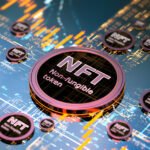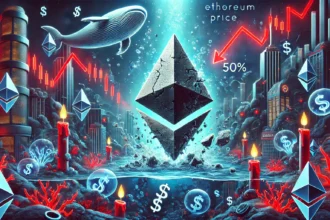The cryptocurrency world has been shaken by the legal battles surrounding Do Kwon, the co-founder of Terraform Labs and the mastermind behind Terra and Luna. As Montenegro approves Kwon’s extradition to the United States, the case has become a global focal point for cryptocurrency fraud and regulatory challenges. This significant development raises questions about investor protection, international cooperation in legal matters, and the future of stablecoins.
The Rise and Fall of Do Kwon and Terra
Do Kwon was once celebrated as a trailblazer in the cryptocurrency industry. As the founder of Terraform Labs, he spearheaded the development of the Terra blockchain, an ecosystem that introduced the algorithmic stablecoin TerraUSD (UST) and its counterpart, Luna. Promising financial innovation, TerraUSD was designed to maintain its peg to the US dollar through an intricate algorithmic system tied to Luna.
Initially, the project gained immense popularity, with Kwon becoming a prominent figure in the crypto community. However, in May 2022, the ecosystem collapsed catastrophically. UST lost its peg, triggering a domino effect that caused Luna’s value to plummet to near zero. The stablecoin collapse erased over $40 billion in market value and led to massive losses for investors worldwide.
The downfall of Terra revealed flaws in Kwon’s algorithmic model and raised concerns about the unchecked growth of digital assets. Investors accused Kwon and Terraform Labs of misleading them about the risks involved. While some viewed the collapse as a cautionary tale for speculative markets, others called for stricter regulation and accountability.
The Legal Battle and Extradition Decision
In the aftermath of Terra’s collapse, Do Kwon faced mounting legal challenges. Authorities in South Korea issued an arrest warrant for him on charges of fraud and violations of financial laws. Simultaneously, US prosecutors accused Kwon of defrauding investors by providing misleading information about the stability of TerraUSD and its underlying mechanisms.
Kwon evaded authorities for months, becoming one of the cryptocurrency world’s most notorious fugitives. His arrest in March 2023 in Montenegro marked a turning point. He was detained at Podgorica Airport while attempting to travel using falsified documents, a discovery that deepened suspicions about his intent to flee justice.
- Sponsored -

Montenegro faced competing extradition requests from both South Korea and the United States. After reviewing the cases, Montenegro approved Kwon’s extradition to the US, citing the scope of the fraud allegations and the impact of Terra’s collapse on American investors.
JUST IN: Terra Luna Founder Do Kwon to be extradited to the United States.
— Watcher.Guru (@WatcherGuru) December 27, 2024The decision underscores the United States’ determination to hold Kwon accountable for his role in one of the largest financial debacles in crypto history. Prosecutors allege that Kwon not only misled investors but also operated Terraform Labs in ways that violated securities laws.
Kwon’s case highlights the growing collaboration among international authorities to address financial crimes in the digital age. Montenegro’s role in facilitating extradition demonstrates the global importance of tackling cryptocurrency fraud and ensuring that perpetrators face justice.
Implications for the Cryptocurrency Industry
The extradition of Do Kwon to the United States is more than just a high-profile legal case; it has far-reaching implications for the cryptocurrency industry. For investors, it serves as a reminder of the volatility and risks associated with digital assets. The Terra-Luna collapse has shaken confidence in stablecoins, prompting regulators worldwide to call for stricter oversight.
Kwon’s trial in the US will likely focus on allegations of securities fraud, investor deception, and financial mismanagement. Legal proceedings may aim to recover lost funds and provide compensation to affected investors. However, the road to justice is fraught with challenges, as tracking and reclaiming crypto assets remains a complex process.
The case also sheds light on the need for clear regulations governing cryptocurrencies. Critics argue that the lack of oversight enabled Kwon to operate Terraform Labs with minimal accountability. The Terra-Luna debacle has already spurred legislative discussions in countries like the US and South Korea, with regulators emphasizing the importance of transparency and investor protection.
Additionally, Kwon’s case highlights the interconnected nature of financial crimes in the cryptocurrency world. The cooperation between South Korea, Montenegro, and the US demonstrates that legal frameworks are evolving to address cross-border fraud. This international effort may set a precedent for future cases involving digital assets and blockchain technology.
Also Read: Shockwaves in Tech: Telegram CEO Pavel Durov Arrested in France for Alleged Fraud
Conclusion
Do Kwon’s extradition to the United States is a pivotal moment in the cryptocurrency industry’s history. His role in the Terra-Luna collapse has brought attention to the risks of algorithmic stablecoins, the need for stronger regulations, and the devastating impact of unchecked financial innovation.
As Kwon faces charges of fraud and securities violations, his trial will likely shape the future of cryptocurrency regulations. The outcome will not only determine accountability for Terra’s collapse but also influence how governments and investors approach the burgeoning digital asset market.
The Terra-Luna saga serves as a sobering reminder of the importance of transparency, accountability, and investor protection in the fast-evolving world of cryptocurrencies. For the millions affected by this collapse, justice for Do Kwon’s actions could mark the beginning of rebuilding trust in the industry.
FAQs
Who is Do Kwon, and why is he being extradited to the United States?
Do Kwon is the co-founder of Terraform Labs and the creator of TerraUSD (UST) and Luna. He is being extradited to the US due to allegations of cryptocurrency fraud, securities violations, and misleading investors following the Terra-Luna ecosystem’s collapse in 2022, which resulted in significant financial losses for investors.
What led to the collapse of TerraUSD and Luna?
TerraUSD, an algorithmic stablecoin, lost its peg to the US dollar in May 2022, leading to a chain reaction that caused Luna’s value to plummet. The collapse wiped out over $40 billion in market value and exposed flaws in the algorithmic model, along with alleged mismanagement by Terraform Labs.
Why did Montenegro approve Do Kwon’s extradition to the US?
Montenegro approved Do Kwon’s extradition to the US after his arrest for using falsified travel documents. The US requested extradition due to the impact of Terra’s collapse on American investors, citing the need to hold Kwon accountable for financial crimes under US law.
What are the charges against Do Kwon in the United States?
Do Kwon faces charges of securities fraud, financial mismanagement, and misleading investors about the risks of TerraUSD and Luna. US prosecutors allege that Kwon knowingly deceived investors, resulting in billions of dollars in losses.
How will Do Kwon’s trial impact the cryptocurrency industry?
Do Kwon’s trial is expected to set a precedent for accountability and regulation in the cryptocurrency sector. The case highlights the importance of transparency and investor protection and could lead to stricter oversight of stablecoins and other digital assets globally.













